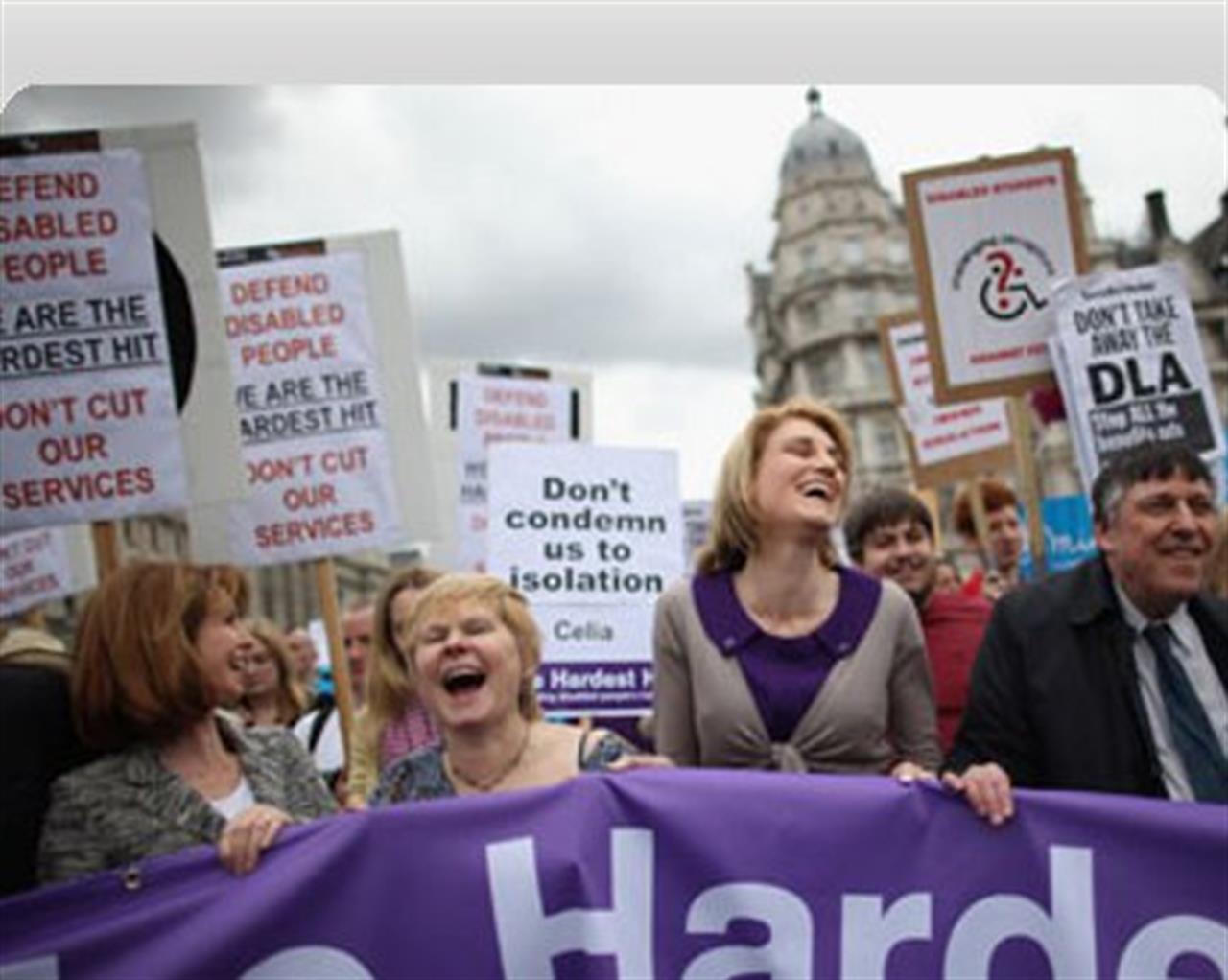Long hours of travels, inaccessible public transportation and high price of train tickets did not stop the thousands of disabled people who took part in the Hardest Hit march in London on May 11 to protest against government cuts to benefits and services. They came from all over Britain, alone or with their friends and families, on their wheelchairs, with their white canes or with their guide dogs, determined to express their concern and their anger about the effects that the funding shortages and the changes to the benefits system will have on their lives. Among the protesters there were also parents of disabled children, concerned about the reduction of the support available for their families, due to the local authority funding shortages.
Over the past year the government has cut budgets to local authorities, started a reform of incapacity benefit payments designed to reduce the number of claimants and begun changes that will hit the disability living allowance.
A recent survey carried out by Carers Uk, Mencap, Disabilities Alliance and Scope found that one in four disabled and older people and their families have already experienced cuts to services and nearly one thousand respondents said they could no longer afford food or heating because of the increased charges for care.
“Disabled people are the hardest hit and they are coming together to say loud and clear: stop the cuts and protect our rights.” Said Jaspal Dhani, Chief Executive of the United Kingdom Disabled People’s Council.
According to the organizers five thousand people took part in the march, although Scotland Yard put the figure between two and three thousand.
The march was organised by the UK Disabled People’s Council and the Disability Benefits Consortium, and was supported by other organizations including Mind, Mencap RNIB and Sense.
To Richard Hawkes, chief executive of the charity Scope, the march has been important to give disabled people a sense that they are not alone: “We know there’s a deficit, but government has said we’re in it together. Taking away the DLA mobility allowance for people in residential care, which means that they can’t go out, is not a sign that we are all in it together.”
Learn more: http://www.ukdpc.net/
Cosa fa VITA?
Da 30 anni VITA è la testata di riferimento dell’innovazione sociale, dell’attivismo civico e del Terzo settore. Siamo un’impresa sociale senza scopo di lucro: raccontiamo storie, promuoviamo campagne, interpelliamo le imprese, la politica e le istituzioni per promuovere i valori dell’interesse generale e del bene comune. Se riusciamo a farlo è grazie a chi decide di sostenerci.

